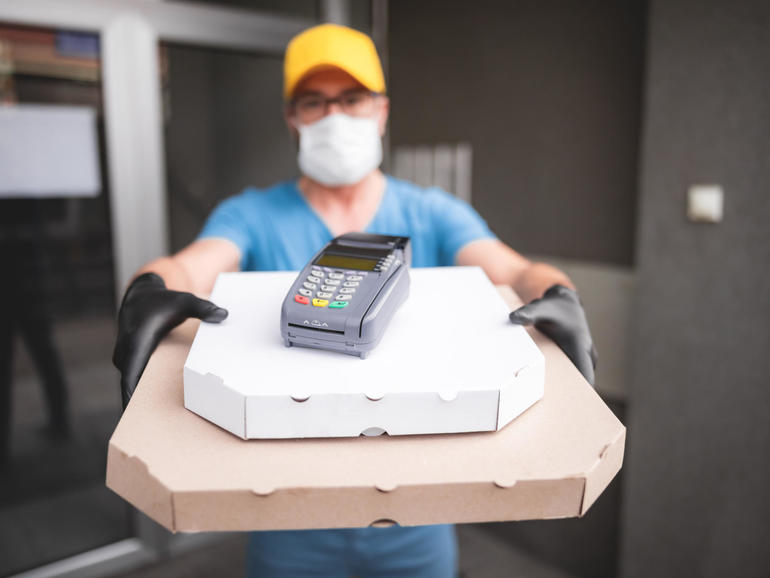Millions of people across the world turned to charities for food, housing and support during the height of the COVID-19 pandemic. But the social and economic devastation wrought by the pandemic also took its toll on the charities themselves, which struggled to stay afloat while working remotely and dealing with steep decreases in donations.
That is where CAF America stepped in to assist. The global grantmaking organization served as a conduit between individuals, corporations, foundations, and charities during the pandemic, processing $68 million in donations over the last year for its network of more than 1.8 million charities across 110 countries.
The organization did all of this while managing its own digital transformation due to the pandemic, according to CAF America senior vice president Jessie Krafft and Kinga Ile, vice president of thought leadership.
CAF America itself had business continuity plans in place before the pandemic and helped support its employees by automatically reimbursing employees $1,500 each for home-office equipment.
“One of the biggest changes that we experienced through the year was just the dramatic increase in giving toward COVID-19 relief initiatives. When we deal with disaster relief like the Australian bush fire or the port blast in Beirut, we’re typically looking at one country or one particular region,” Krafft said.
“But this year was totally different because it was truly a global crisis, so we had to adapt our systems and our teams very quickly to be able to follow that crisis as different hotspots came about around the world.”
She added that the organization had to completely change how it interacted with charities in order to collect information for donors and identify areas in need of support.
CAF America began to send out surveys to the charities they supported to figure out how COVID-19 was affecting their work and what their greatest needs were. Krafft said it was important for CAF America to figure out the anticipated, and unanticipated, effects of the pandemic.
They ended up compiling and releasing seven different rounds of surveys and reports chronicling how thousands of charities fared during the pandemic.
CAF America had never done its work in this fashion and realized that the reports provided valuable information to donors, helping them understand the acute impacts of COVID-19.
The increased demand for assistance from charities around the world and, in some cases, increased giving, forced CAF America to expand its staff significantly.
Krafft noted that demand for food banks skyrocketed during the pandemic as countries dealt with the economic fallout from efforts to stop the spread of the virus.
“Food banks are still seeing a rising demand for their services while at the same time, a decreasing contribution rate because they lost many donors throughout the year. Some corporate partners pulled out of their annual grant programs,” Krafft explained.
“Charities globally have been crushed under these these two opposing forces and some of them have been able to sustain and have adopted new methods of fundraising and new strategies for reaching their donors. But there are a lot of organizations that still are not certain they will survive the pandemic.”
According to CAF America’s studies, about 40% of charities are not sure if they will survive the next crisis and 18% are unsure if they will make it through the next year.
CAF America also had to create a rapid response team to handle the federal regulatory requirements that come with processing donations for charities across the globe. The organization generally had to operate more efficiently in order to get money to organizations quicker than usual.
Angela Frigo, secretary general of the European Food Banks Federation, told ZDNet that her organization faced a variety of problems in dealing with the broader political and socio-economic challenges caused by the pandemic.
“The Coronavirus pandemic is not just a health crisis. It has thrown many people into insecurity overnight, especially those who were marginalized before, and it has also disrupted our food system. The health emergency and its socio-economic effects, especially during the first wave of COVID-19, varied from country to country but it is evident everywhere that this pandemic has brought a new food emergency with an increased demand for food from the most deprived and new groups at risk,” Frigo said.
“At the same time, the COVID-19 pandemic created massive disruptions in the food system, from farm to fork. In some cases, we observed and experienced severe food shortages or panic buying due to lockdown.”
Members of FEBA across Europe worked tirelessly to redistribute nearly two million pounds of food to 48,126 charitable organizations that were helping 12.8 million people in need. This represented a 34.7% increase in comparison with 2019. The organizations did all of this while losing volunteers, struggling with finances and reorganizing on the fly to keep workers safe.
Frigo said the support provided by CAF America during the difficult periods of the pandemic was essential in keeping the organization afloat.
“By facilitating the contact with donors and simplifying the administrative procedures, it was extremely easy to receive donations that were fundamental to respond to COVID-19. Beyond sending along donations, working with CAF America made it possible for FEBA to be part of a worldwide network of non-profit organizations responding collectively to the crisis,” Frigo said.
“In a period characterized by social distancing measures, we felt CAF America close to our mission and we benefited from the experience and the lessons learnt by thousands of other non-profit organizations. In general, CAF America supported FEBA in finding ways to deepen and widen partnerships with donors and supporters, and to enhance these collaborations as a key factor to face the situation. These partnerships will be critical for the continuity of our activity and FEBA, thanks to the great collaboration and involvement with CAF America in this period, is more prepared to face future challenges in a post-COVID world.”


